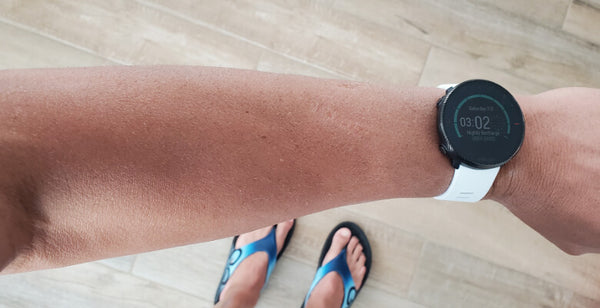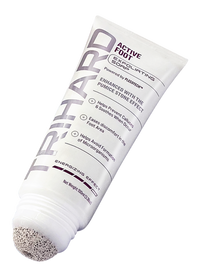The Best And Most Effective Ways to Treat Sun Poisoning
Every year, people across the world suffer from sun poisoning. There are a number of ways to treat sun poisoning, however, the best way is prevention.
If you have been out in the sun for too long and you feel that it might be starting to affect your skin, then it is time for treatment.
There are a number of different treatments that can be used and they all depend on how severe your case of sun poisoning is. Some people may need more than one type of treatment as well as some rest and hydration.
In this article, we are going to teach you what sun poisoning is and its symptoms, how long it takes for sun poisoning to go away, how to treat sun poisoning and when it’s time to see a doctor.
Let’s get started.
What is sun poisoning?

Sun poisoning is more serious and lasts longer than simple sunburns. Sunburn is characterized by itchy, red skin that peels after a while. Sunburns, however, usually fade after a short period of time.
When you are exposed to direct sunlight for a prolonged period of time, you may develop sun poisoning. In the beginning, it will feel like a sunburn, but once blisters appear, sun rash appears, and fever and nausea appear, we are dealing with sun poisoning.
In order to prevent sun poisoning from getting worse, it is usually necessary to seek medical attention. When left untreated, sun poisoning can lead to dehydration, infections, and even skin cancer.
What are the symptoms of sun poisoning?
Keep in mind that the symptoms of sunburn also appear in cases of sun poisoning, but they tend to be more severe and persistent. Some of the most common symptoms of sun poisoning are:
- Dizziness and headaches
- Dehydration
- Blistering and redness of the skin
- Tingling sensation
- Pain and inflammation
- Cold and feverish feelings
- Nauseas
How long does it take for sun poisoning to go away?
To avoid further complications, you should treat sun poisoning immediately. Sun poisoning can be treated with a number of remedies, which we will list below. Based on your preferences and needs, you can decide which one is best for you.
How to treat sun poisoning
Taking care of sun poisoning immediately is one of the most important things you can do to avoid further complications.
There are a number of remedies for sun poisoning, which we will list below so you can decide which one suits you best depending on your preferences and needs.
Get out of the sun
Generally, you should avoid spending too much time in the sun. The sun's rays are strongest between 10 am and 4 pm, so avoiding peak hours is key.
We recommend limiting our sun exposure during these hours, but we know we don't always have control when competitions happen, so we will show you alternatives.
Aloe Vera

Aloe vera has been used as a medicine for treating wounds and burns on the skin for thousands of years. When applied to irritated or burned skin, its anti-inflammatory properties provide a cool, soothing sensation.
Sun poisoning blisters and burns can also be treated with aloe, as it heals wounds. In addition to keeping the skin moist, aloe vera prevents sunburns from peeling.
To treat a sunburn, apply aloe vera gel extracted from the inside of the leaf to the affected areas. The gel will soothe sunburns, rashes, and hives.
Rehydrate

Those who suffer from severe sunburns can become dehydrated and even go into shock. There are several symptoms associated with dehydration, including fainting, weakness, headaches, fatigue, vomiting, and dizziness.
Fluids and electrolytes should be replenished as soon as possible. You can replenish lost fluids by drinking water but electrolyte-fortified sports drinks often provide quicker rehydration.
When to see a doctor
Despite the fact that sunburns and sun poisoning are usually temporary conditions, immediate treatment can prevent long-term damage, such as infection. We recommend consulting a medical professional if you experience any of these symptoms:
- Headaches, fever, severe pain, dehydration, concussion, nausea or other unusual symptoms after a sunburn.
- Sunburns that cause blisters or peeling skin and cover a large area of your body.
- Symptoms of a skin infection, such as swelling, pus, or red streaks coming off of the blister.
Also, consult your doctor if you have tried at-home care and have not seen results.
Summary
Direct exposure to sunlight for a prolonged period of time can cause sun poisoning. Without treatment, it can cause dehydration, infections, or even skin cancer.
Symptoms of sun poisoning include dizziness, headaches, dehydration, blistering, nausea, pain, and inflammation. Depending on how severe it is, it can last anywhere from two days to a few weeks. A variety of remedies can be used to treat it, so choose the one that suits you best.
You should avoid long periods of exposure to the sun, and limit your exposure during peak hours.
Inflammatory burns, swelling, and hives caused by sun poisoning can be soothed with Epsom salts.
Burnt skin can be soothed and wounds can be healed with Aloe Vera gel. When it comes to sunburns, it can also keep the skin moist and prevent peeling.
When exposed to severe sunburns, a person can become dehydrated and go into shock. Dehydration can be quickly relieved by drinking water and supplementing with sports drinks.
If you experience severe symptoms after a sunburn, you should consult a medical professional.





























Dejar un comentario